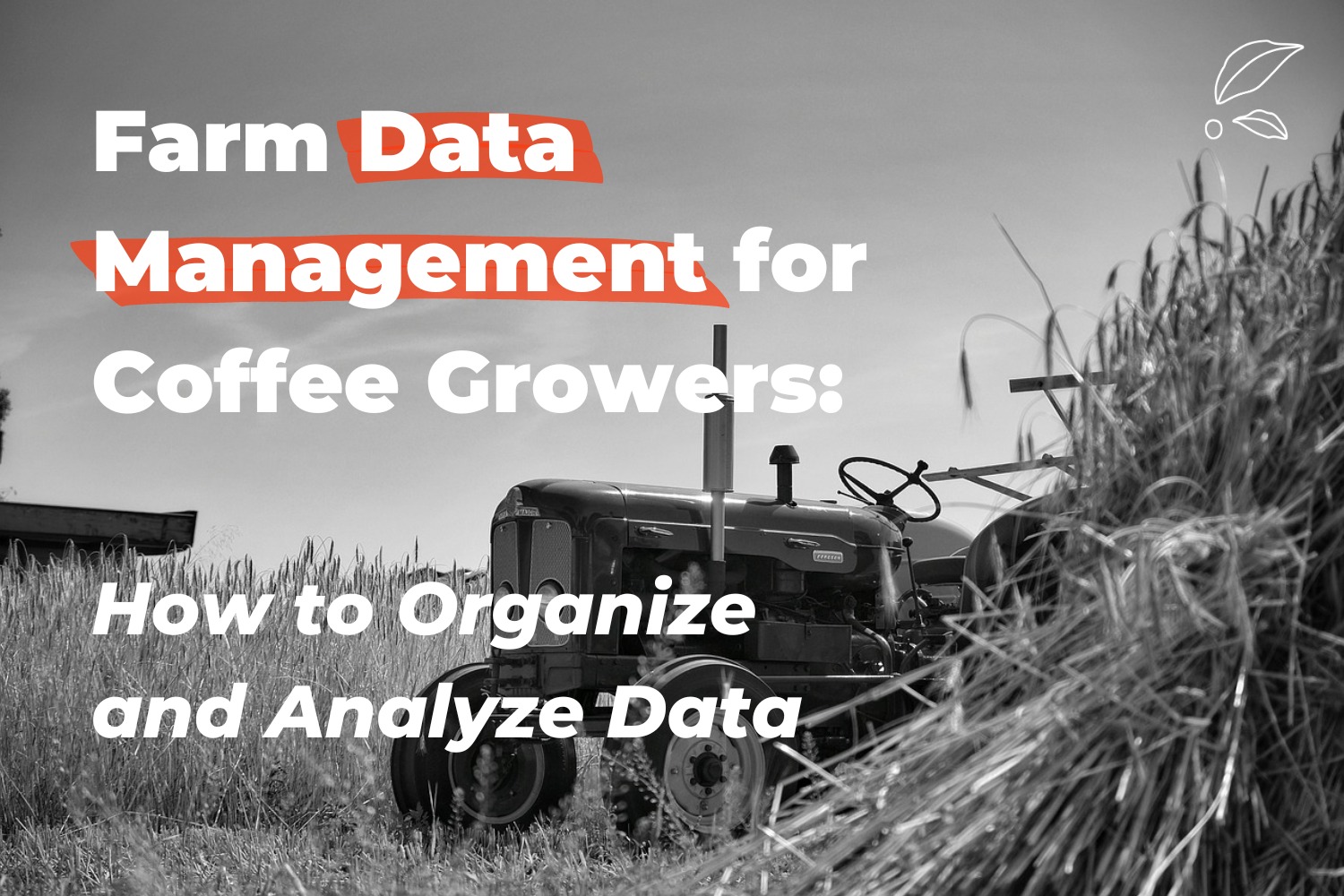Welcome to our complete guide to farm data management for coffee producers. With the global coffee market constantly changing, making informed decisions based on data is more important than ever. Coffee producers must deal with a range of challenges, from weather variations to price fluctuations, which makes farm data management essential for successful coffee production.
The good news is that with the right tools, you can collect, analyze, and interpret data to optimize coffee farm management practices. In this guide, we will provide guidance information on strategies for organizing and analyzing farm data, including how to track expenses and revenues, how to monitor production and quality, and how to use data to optimize farm management practices.
By the end of this guide, we hope coffee producers can have a clear understanding of how to use data to make informed decisions and improve the efficiency of coffee production. So let’s get started!
Strategies for Organizing Data and Optimizing Management
1 – Track Expenses and Revenues
Tracking expenses and revenues are one of the most essential tasks for coffee producers, as it allows them to monitor the financial health of the farm and identify areas for improvement. To track this information effectively, producers need to collect accurate data on expenses and income and organize it in a clear and concise manner.
Data collection can be done in a variety of ways, including manual record-keeping or the use of financial management software. Spreadsheets are a common tool for this tracking, allowing producers to record information in an organized and detailed manner. On the other hand, financial management software can offer more advanced features, including integration with other platforms such as Internet banking, for example.
When collecting data, it is important that producers classify expenses and revenues into clear and specific categories. This will help identify which areas generate the most costs and where adjustments can be made to improve profitability. Some common categories include labor, farm inputs, equipment maintenance, transportation, and coffee sales.
Another important aspect is keeping accurate and up-to-date records of all financial transactions on the farm. This includes invoices, receipts, and bank statements, among others. Keeping accurate records is essential to avoid accounting errors and ensure that the business complies with tax and labor laws.
Finally, producers should periodically analyze financial data to identify trends and opportunities for improvement. Based on the data, they can make informed decisions about the financial management of the farm, such as adjusting coffee selling prices, reducing costs, or investing in infrastructure improvements.
2 – Monitore Production and Quality
Monitoring production and quality is another crucial aspect of farm data management for coffee producers. Collecting accurate data on coffee production and quality allows producers to assess farm performance, identify areas that need improvement, and make informed decisions about growing, harvesting, and processing the bean.
To monitor production, producers can collect data on the amount of coffee produced in each area of the farm, as well as on weather conditions, input usage, and management practices adopted. This data can be collected manually, using spreadsheets or farm management software. It is also possible to use remote sensing technologies, such as drones or satellites, to collect production data.
Monitoring the quality of the coffee is equally important since it is a decisive factor in setting the sales price and building customer loyalty. To monitor quality, producers can collect data on sensory aspects of the coffee, such as aroma, flavor, acidity, and body, through tasting tests or chemical analyses. This data can also be collected manually, using spreadsheets, or by means of quality management software.
To obtain reliable quality data, it is important that producers adopt proper harvesting, processing, and storage practices. Timely harvesting, proper processing, and correct storage can positively influence the coffee quality and, in turn, farm profitability.
In addition, producers can adopt advanced technologies to monitor coffee production and quality. For example, sensors can be installed on coffee plants to monitor soil moisture and nutrient levels, allowing growers to adjust management practices more accurately and efficiently.
3 – Store Data in a Centralized System
Storing data in a centralized system is one of the most important agricultural data management strategies for coffee farmers. This system allows coffee farmers to easily access their data, monitor trends, and make informed decisions based on it.
There are several options for centralized systems for data storage, such as farm management software or mobile applications. These systems allow coffee producers to store data such as harvest history, weather data, financial data, and other important information for production management.
By storing the data in a centralized system, coffee producers can easily access and compare it over time. This helps to identify trends and patterns, such as seasonality of production or impact of weather, which can be used to make forecasts and informed decisions.
In addition, this system also allows coffee producers to share information with other team members, such as agronomists, technicians, or consultants. This helps to create a shared view of the farm and make more effective decisions together.
To ensure the effectiveness of the centralized system, it is important that coffee producers back up data regularly, thus ensuring data security and minimizing the risk of losing important data.
In conclusion, farm data management is an essential tool for coffee producers who want to optimize their farm management practices and make informed decisions. Collecting and analyzing data on production, finances, and coffee quality can help producers identify opportunities for improvement and maximize their farm’s potential.
By adopting these strategies, coffee producers can improve production efficiency, increase coffee quality, and make more informed decisions about future investments. In addition, farm data management can help minimize waste and reduce production costs, thereby maximizing profits.





